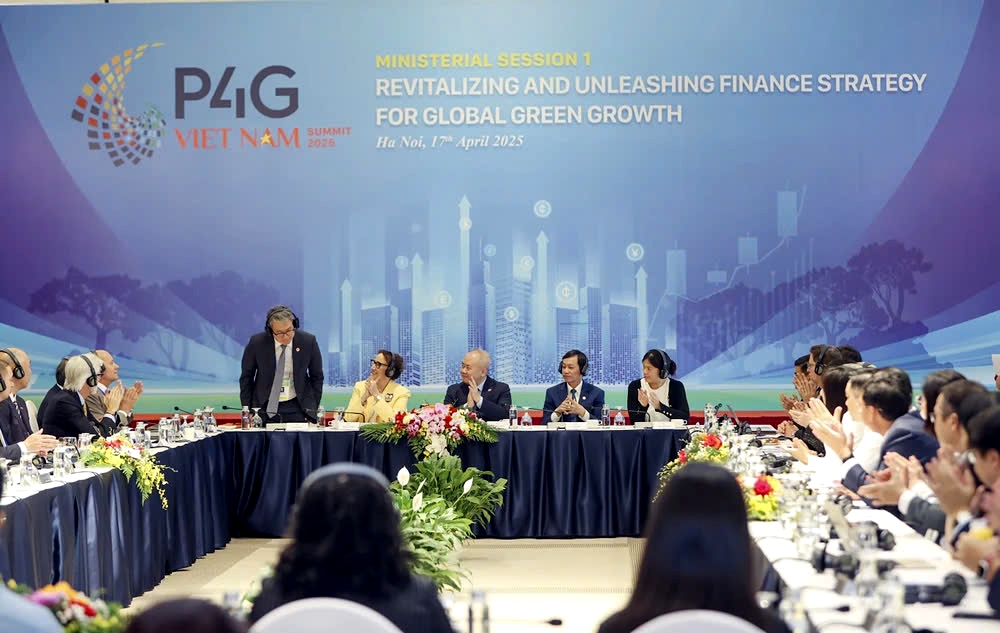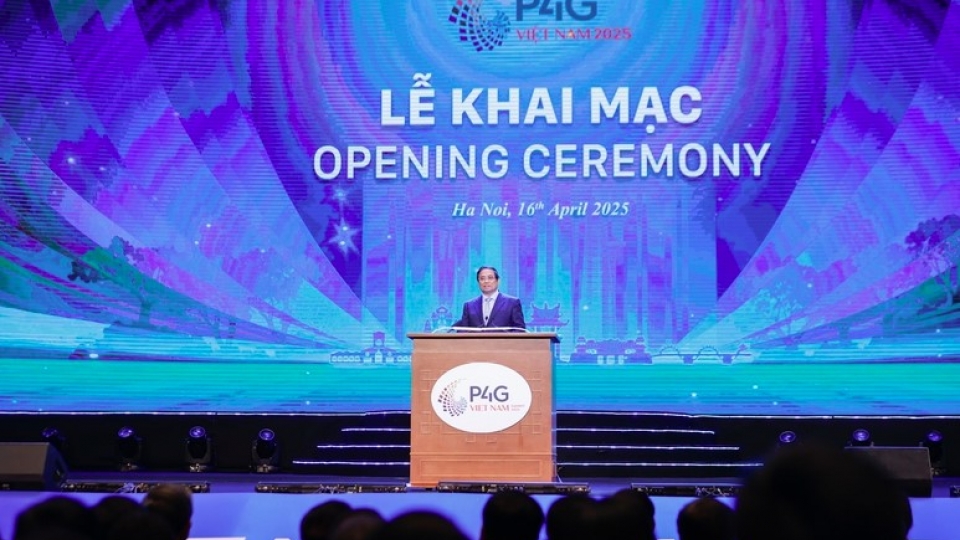P4G shares experience in unleashing finance strategy for green growth
VOV.VN - Delegates shared experience in revitalizing and unleashing finance strategy for global green growth during a ministerial session in Hanoi on April 17 as part of the fourth Partnering for Green Growth and the Global Goals 2030 Summit (P4G).

Addressing the event, Vietnamese Deputy Minister of Finance Do Thanh Trung emphasised that green growth is an irreversible global trend, and Vietnam is firmly sticking to this direction.
He noted that the Government of Vietnam has demonstrated strong resolve to promote green growth through participation in numerous international commitments on sustainable development and climate change.
One of the most notable achievements in its green growth strategy is the progress made in the field of green finance and green credit, he said, stating that green credit in Vietnam has grown eightfold, from VND71 trillion in 2015 to VND564 trillion in 2023, accounting for 4.4% of total outstanding credit in the economy.
To ensure that global commitments deliver real, tangible outcomes, he stressed the need for closer policy consultation and coordinated action among countries both in the short and long term. Crucially, he said, the joint development and implementation of financial mobilisation strategies for green growth, tailored to the structure of the global financial system, is of paramount importance.
In this context, Trung asked for a redefinition of the mission and role of national financial institutions within the global financial framework, suggesting this be considered a priority breakthrough solution.
“National financial institutions, in addition to strengthening their role in coordinating financial policy, should also be pioneers in building legal frameworks and creating enabling environments to attract resources for green projects,” he said.
To do this, he suggested developing green financial markets, and promoting the issuance of green bonds, sustainable financial instruments, and financial products that support green initiatives.
He further proposed that national financial institutions act as central coordinating bodies in intersectoral and international collaboration, supporting enterprises to engage in green projects. This would involve preferential policies and direct financial support to enhance the attractiveness of such projects to both domestic and international investors.
Speaking at the gathering, Rebeca Grynspan, Secretary-General of the United Nations Conference on Trade and Development (UNCTAD), emphasised the crucial role of finance in green transition, stating green finance is a key mechanism that countries around the world are leveraging to achieve green and sustainable growth.
In recent years, renewable energy has increasingly proven its importance, while electric vehicles, green construction, and the circular economy have become prevailing global trends.
Highlighting that financial resources are as vital as water, Grynspan cited UNCTAD reports, saying green capital flows are being directed toward a range of industries. However, some climate-vulnerable regions still face limited access to green financing, or significant challenges in securing it.
In this context, she stressed, the P4G summit presents a historic opportunity to catalyze global banking institutions and increase private sector investment, particularly in underserved areas.
Chuop Paris, Vice Minister of Environment of Cambodia, shared that the country has adopted policies aimed at enhancing economic resilience, alleviating poverty, promoting digital connectivity, and reducing carbon emissions.
In parallel, Cambodia has actively worked to attract green investments, while strengthening cooperation with the private sector and international partners to unlock new resources for sustainable development.
“Cambodia has issued a new circular on sustainable environmental development and green energy transition. P4G will serve as a catalyst for countries to share cross-border commitments and build a common, inclusive, and sustainable future,” said Chuop.
Taking the floor, Chung Keeyong, Vice Minister and Ambassador for Climate Change of the Republic of Korea, emphasised that any green transition must be people-centered, and that mobilising finance is a key factor for its success.
He commended P4G for its timely leadership and strategic direction, and suggested that the forum should establish clear mechanisms and roadmaps to effectively implement its climate change commitments.
Chung proposed key points for P4G in the coming period, including emphasising cost-effectiveness by enabling P4G to serve as a platform connecting countries that incubate innovative ideas and share risk-reduction mechanisms; ensuring realistic access to funding, with a strong focus on vulnerable groups; and developing a green taxonomy system, accompanied by annual pilot projects to test and evaluate climate change adaptation and mitigation solutions.
During the discussion, delegates looked at lessons from countries in developing green finance markets, solutions to overcome technical, legal, and market barriers, and financial policies that attract investment from both public and private sectors.




